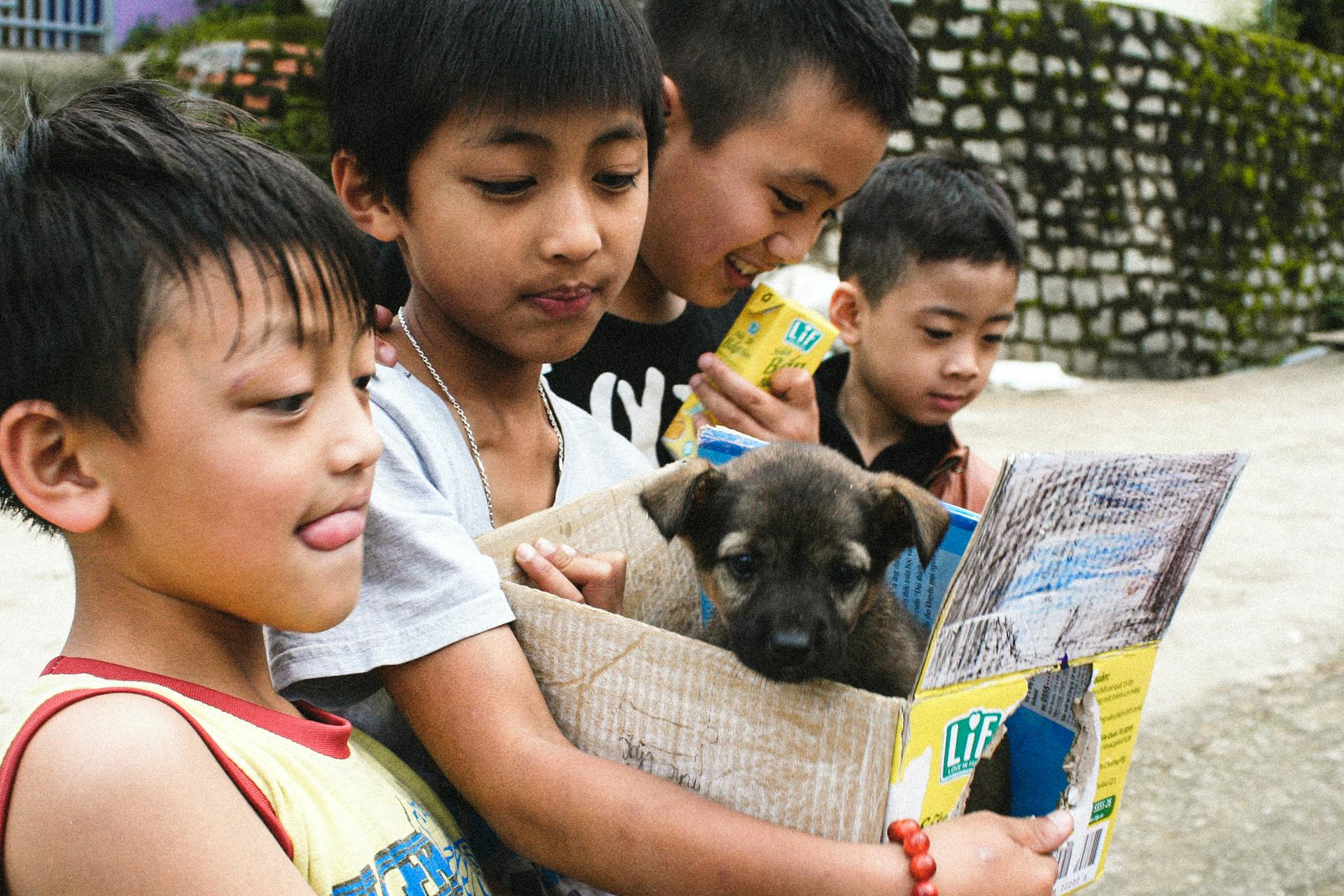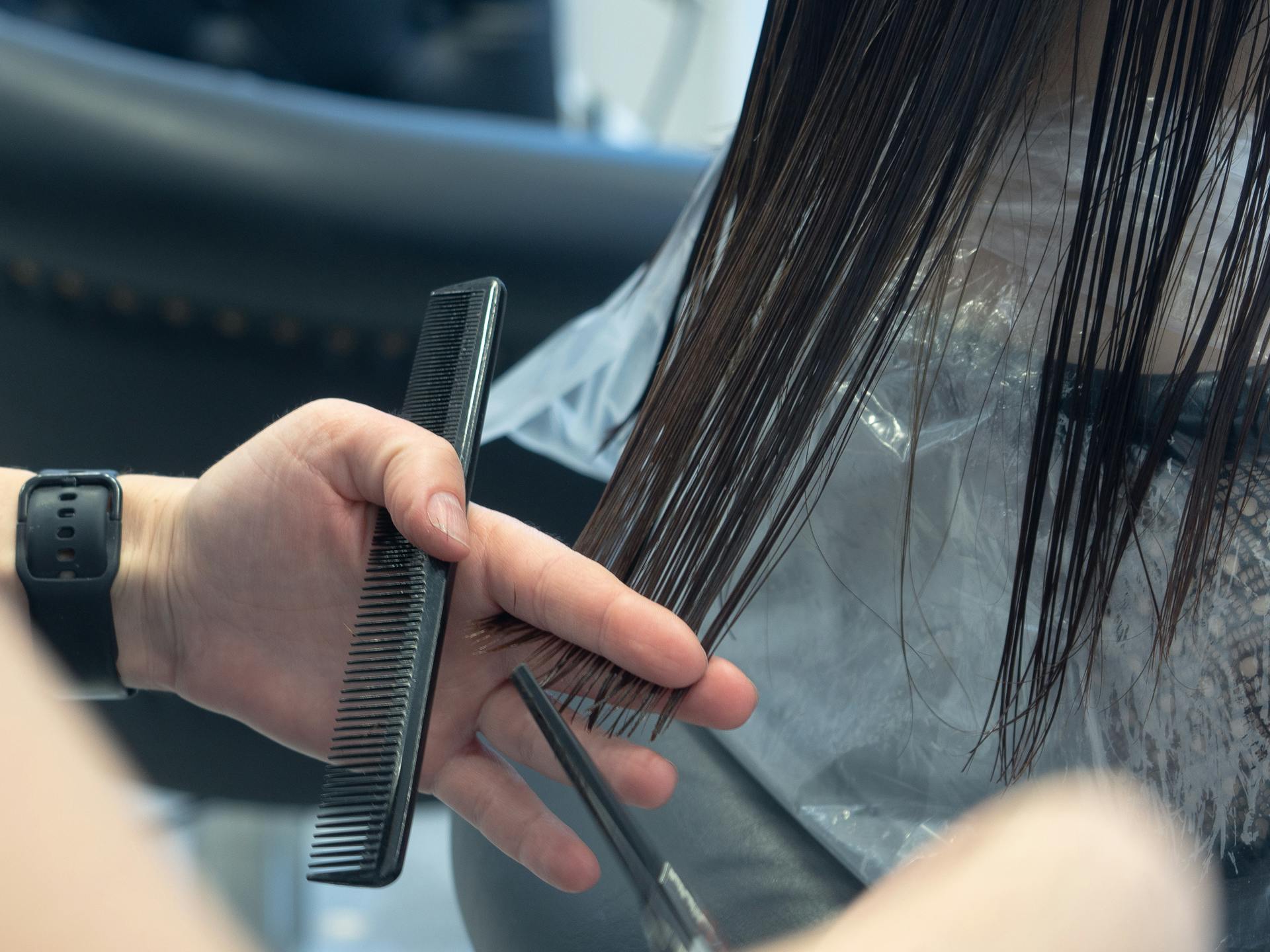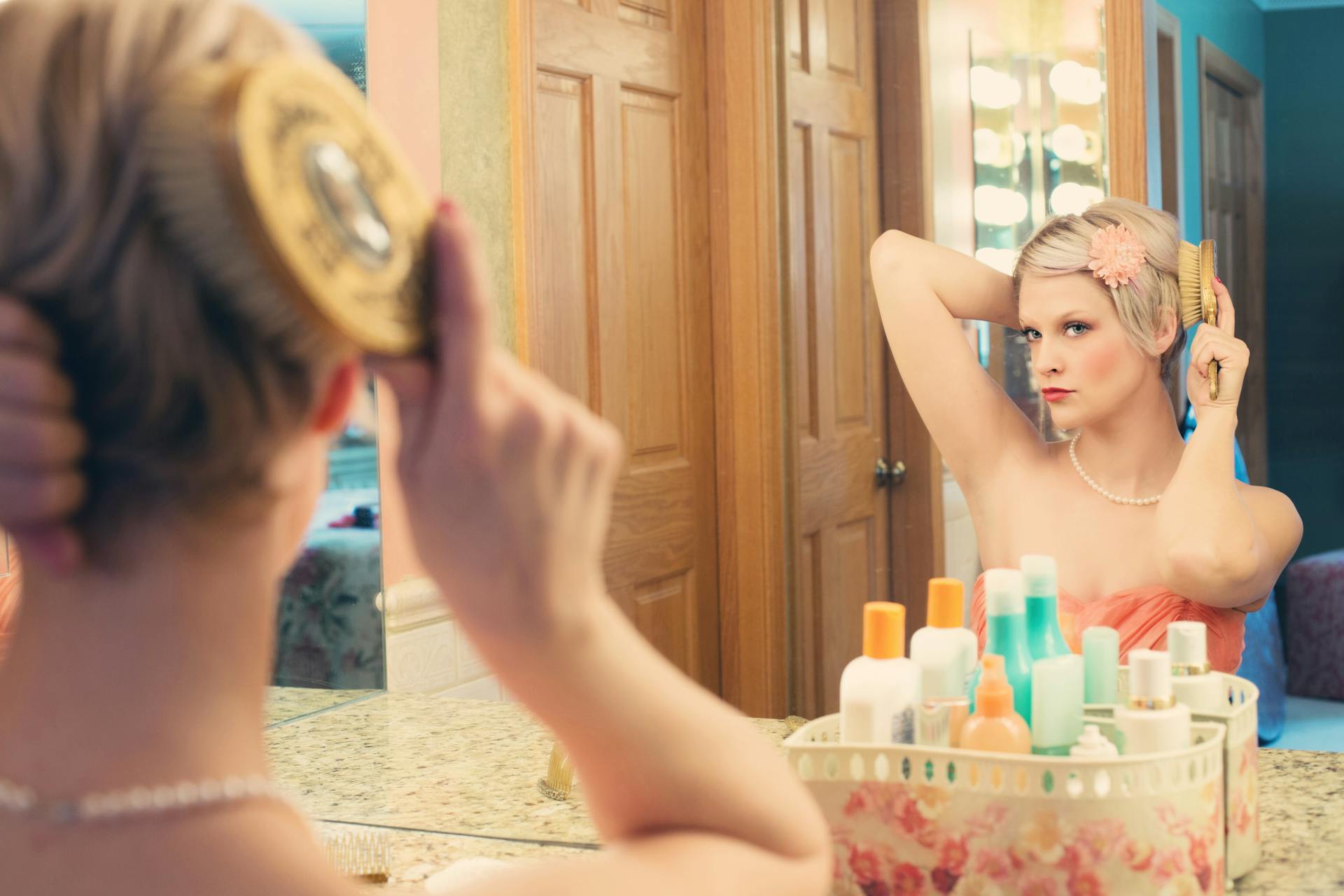
Welcoming a Cockapoo into your family is a big decision, and with great responsibility comes great reward. Cockapoos are a cross between a Cocker Spaniel and a Poodle, making them a low-shedding breed perfect for those with allergies.
They require regular grooming to prevent matting and tangling of their fur. A daily brush is essential to keep their coat looking its best.
Their high energy levels mean they need plenty of exercise to stay happy and healthy. A daily walk and playtime of at least an hour is recommended.
With proper care and attention, Cockapoos can live up to 15 years or more, making them a long-term companion.
Caring for a Cockapoo
Cockapoos are a calm canine to add to your family. They're exuberant, friendly, and always happy to spend time around other people and pets.
Their happy personality makes them a great pal for children, though interactions between kids and dogs should always be supervised. This is especially important for young children who may not understand how to interact with dogs gently.
A Cockapoo's calm demeanor means you won't need to run marathons every day to tire them out. They typically just need a couple of walks per day, a game of fetch, or a good swim to be happy.
However, their low-maintenance exercise needs don't mean they don't require regular grooming. In fact, their coat needs to be brushed every day to prevent matting.
Regular bathing is also essential to keep their skin clean and healthy. It's not just about appearances - grooming is a fundamental aspect of their health and happiness.
You'll also need to schedule professional grooming every four to six weeks to help maintain their coat and support their overall health. This will help prevent any health issues that can arise from poor grooming.
Broaden your view: How to Cut Cockapoo Hair
Health Issues
Cockapoos are prone to eye conditions and other health issues, so it's essential to consider purchasing pet insurance before bringing home a Cockapoo puppy. This will help cover the cost of potential surgeries for more serious conditions.
Regular veterinary check-ups are crucial to ensure your Cockapoo remains happy and healthy. Your vet can advise you on the necessary vaccinations and treatments, such as flea and tick medication, to protect your pet from common health problems.
Some common health issues in Cockapoos include eye conditions, which can be identified early on with regular veterinary check-ups. Monitoring your Cockapoo's health is essential to prevent these conditions from becoming more serious.
Early warning signs of illness in your Cockapoo include decreased appetite, failure to gain weight, and recurring bouts of vomiting. If you observe any of these symptoms, it's vital to get in touch with your vet promptly.
Here are some potential health issues to watch out for in your Cockapoo:
- Eye conditions
- Decreased appetite or refusal to eat
- Failure to gain weight or unexplained weight loss
- Recurring bouts of vomiting
- Bloated or painful abdomen
- Persistent lethargy or seeming excessively tired
- Frequent diarrhea
- Trouble breathing, wheezing, or persistent coughing
- Pale or unusually colored gums
- Red, swollen eyes or unusual eye discharge
- Continuous nasal discharge
- Difficulty passing urine or stool
Oral health is often overlooked, but it's vital for your teacup Cockapoo's well-being. Flossing their teeth regularly can help prevent dental issues.
Nutrition
Nutrition plays a vital role in your Cockapoo's overall health and wellbeing. Feed them high-quality dog food formulated for their life stage, and consider consulting your veterinarian for personalized feeding recommendations.
Cockapoos need a balanced and nutritious diet to maintain their health and weight. Adult Cockapoos should eat twice a day, ideally in the morning and evening, while puppies need to eat more frequently, as much as three or four times a day.
A healthy diet for your Cockapoo should consist of high-quality protein, healthy fats, and complex carbohydrates. Choose food that lists meat as the first ingredient and avoid dog food with fillers, artificial colors or flavors, and preservatives.
Readers also liked: A Guide to Managing Healthy Weight in Your Dog This Summer
Nutritional Tips
Cockapoos get most of their nutrients from AAFCO-approved dog food, but they may benefit from joint supplements. Consult with your veterinarian before giving your Cockapoo any supplements.
Nutrition is the foundation of your teacup Cockapoo's health, so choose high-quality dog food formulated for small breeds.
Cockapoos should eat dog food approved by the Association of American Feed Control Officials (AAFCO) that's appropriate for their life stage.
Adult Cockapoos should be fed twice daily, ideally in the morning and evening, to prevent overeating.
Food-based rewards during training sessions are fine, but treats should make up a small portion of their daily calories to avoid weight gain.
The amount you need to feed your Cockapoo varies from dog to dog, so follow the food label to determine the correct amount to feed them and ask your veterinarian how much your pup needs to eat.
Adult red cockapoos require a balanced and nutritious diet to maintain their health and weight, following the appropriate feeding guidelines is essential to ensure your pet's wellbeing.
Recommended daily amount for an adult Cockapoo is 1/4 to 3/4 cup of high-quality dry food a day, divided into two meals.
A healthy diet for your adult red cockapoo should consist of high-quality protein, healthy fats, and complex carbohydrates, choose food that lists meat as the first ingredient.
Ensure your dog has access to fresh and clean water throughout the day, clean the water bowl daily and replace the water at least once a day.
The recommended portion size for adult red cockapoos varies depending on their weight, activity level, and age, as a general rule, dogs should be fed 2-3% of their body weight per day, divided into two meals.
Recommended read: Cockapoo Adult Dogs
Size
When choosing the right nutrition plan for your Cockapoo, understanding their size is crucial. The Cockapoo is bred in four different size categories, which affect their nutritional needs.
The smallest of the bunch is the Teacup Toy, weighing in at less than 6 pounds and standing under 10 inches tall.
The Toy Cockapoo, on the other hand, can reach 10 inches in height but has a sturdier build, tipping the scales at just under 12 pounds.
The Mini Cockapoo weighs 13 to 18 pounds and ranges between 11 and 14 inches high, requiring a balanced diet to maintain their energy levels.
A good rule of thumb is to feed your Cockapoo according to their size category, with the Standard or Maxi Cockapoo needing the most calories due to their larger size.
Here's a quick reference guide to the different size categories:
Coat Color
The Cockapoo's coat color is a unique aspect of its appearance.
Cockapoos can be found in all the colors and color combinations seen in both Cocker Spaniels and Poodles.
A wider variety of coat colors is available in Cockapoos than in many other breeds.
Many people like to clip their Cockapoo's coat, but it should only be trimmed two to three inches long.
This helps maintain the coat's natural texture and appearance.
Take a look at this: Shiba Inu Color Variations
Behavior
Cockapoos can thrive in any environment, from a bustling city apartment to a sprawling farm, as long as they receive proper mental and physical stimulation.
They may be quiet dogs, but they can develop separation anxiety and bark in reaction to stimuli like the mail carrier or when left alone for long periods.
Cockapoos are relatively easy to train due to their intelligence and eagerness to please, making the training process smooth and straightforward.
To keep them engaged, provide a variety of toys, daily walks, and other forms of physical and mental stimulation.
Socialization should start early, but it's never too late to introduce them to new environments, people, and animals, and reward them for positive interactions.
Their training and socialization needs may differ depending on their personality, history, and health, so consult a professional trainer or veterinarian for personalized advice.
Teaching your Cockapoo basic commands like 'sit', 'stay', and 'come' fosters a deep bond and encourages understanding and mutual respect.
Obedience training is essential for their safety, and seeking professional help can make the process enjoyable and successful for both you and your furry friend.
Grooming and Hygiene
Caring for your Cockapoo's coat is crucial for their overall well-being. Their parent breeds are renowned for their unique grooming requirements, so regular grooming is essential.
Daily home care is equally important. Brushing their coat every day prevents matting, while regular bathing ensures clean and healthy skin. Routine ear inspections can help identify and prevent infections, and frequent nail trimming can make movement comfortable.
Trimming their hair around eyes, ears, and paws to avoid infections, matting, and snarling is also important. Trimming nails regularly is essential to avoid discomfort and health issues for your dog.
Intriguing read: Shiba Inu Grooming
Essential Supplies
Having the right supplies is crucial for your Cockapoo's grooming and hygiene routine. A dog crate is a fundamental need for your pup, serving as a safe and suitable space for them to sleep and relax.
A crate that allows your pup to stand, turn around, and stretch out comfortably is essential. This cozy space will become a safe haven for them, especially during their sleep or when you can't supervise them.
You might like: Dogs Wag Tail in Sleep
A comfortable bed for your Cockapoo is also a key necessity. Look for a bed that fits well inside the crate and offers soft padding for your puppy. A machine washable and durable bed is a must.
A snuggle puppy can be a tremendous comfort for your Cockapoo, especially during the initial days when they might miss their littermates or mother. This comforting toy can help alleviate anxiety and promote better sleep.
Proper food and water bowls are an integral part of your puppy's feeding routine. Opt for bowls that are resistant to tipping over and easy to clean, like stainless steel. Make sure they're sized appropriately for your Cockapoo puppy.
A high-quality collar or harness and leash are necessary for your Cockapoo's safety during walks. Collars should fit snugly but not tightly, with enough room for two fingers between the collar and your pup's neck.
Caring for Your Coat
Cockapoos have a single, long coat that requires regular grooming to prevent matting and tangling.
Brush your Cockapoo's coat daily to prevent matting and keep their coat looking its best.
To maintain their coat's health, schedule professional grooming every four to six weeks, and brush their coat every day at home.
Regular grooming also helps prevent infections, so be sure to trim their hair around eyes, ears, and paws to avoid matting and snarling.
You should also trim their nails regularly to avoid discomfort and health issues.
In addition to brushing, other coat maintenance tasks include trimming their hair around eyes, ears, and paws, and checking for any lumps, bumps, or injuries.
Daily brushing is essential to prevent matting and keep their coat healthy, and you should use a slicker brush or a comb to brush in the direction of the hair growth.
Their coat should be brushed daily, and it's different for every Cockapoo, but a puppy resulting from multigenerational breeding is supposed to be odorless and nonshedding.
However, "nonshedding" is a fantasy since every dog on the planet sheds at least a tiny bit.
A different take: Dogs Hair Standing up and Tail Wagging
To retain coat oils and health, they only need to be bathed when absolutely necessary.
Their floppy Cocker ears block air circulation, so the ears must be checked and cleaned weekly to prevent ear infections.
You should gently wipe out the ear with a cotton ball moistened with a cleaning solution recommended by your veterinarian.
Trim their nails once or twice a month if they don't wear them down naturally to prevent painful tears and other problems.
Dog toenails have blood vessels, and if you cut too far, you can cause bleeding.
Make grooming a positive experience with praise and rewards, and you'll lay the groundwork for easy veterinary exams and other handling when they're an adult.
As you groom, check for sores, rashes, or signs of infection such as redness, tenderness, or inflammation on the skin, nose, mouth, eyes, and feet.
Eyes should be clear, with no redness or discharge.
Additional reading: Breeds of Dogs with Pointy Ears
Cozy Bed
A comfortable bed is essential for your full-grown red cockapoo, just like it is for you.
Choose a bed that's appropriately sized, providing ample space for your pet to stretch out in comfort.
Soft, durable fabric is a great choice for a pet bed, as it can be easily cleaned.
A bed made of soft, durable fabric can withstand regular use and cleaning, making it a practical choice for your pet.
Check this out: Best Soft Food for Dogs after Dental Surgery
Health and Wellness
Regular vet visits are essential to monitor your Cockapoo's health. Schedule annual vet visits for your Cockapoo and keep up with their vaccination and preventative treatment schedule.
Your vet can advise you on the necessary vaccinations and treatments, such as flea and tick medication, to protect your pet from common health problems. Regular health monitoring and veterinary care are crucial to the long-term health and wellbeing of your Cockapoo.
Some common vaccinations for puppies include distemper, parvovirus, hepatitis, and rabies. These vaccines will be given on a schedule recommended by your vet, typically starting from around six to eight weeks of age, with boosters following at regular intervals.
Here are some common health issues to watch out for in your Cockapoo:
- Changes in appetite
- Breathing difficulties
- Unusual behavior
By staying on top of their healthcare needs, you can help ensure your Cockapoo lives a happy and healthy life.
Choosing a Trustworthy Vet
Choosing a trustworthy vet is a crucial decision for any dog owner. A good vet is critical to your Cockapoo's health and longevity.
Word-of-mouth is one of the best ways to find a reputable vet. Reach out to other dog owners, local pet organizations, and breed-specific online forums for recommendations.
Researching a vet's credentials is also essential. Look into where they received their veterinary degree and choose a vet with experience working with Cockapoos or similar breeds.
Visiting the clinic before committing to a vet can give you a sense of the facility's cleanliness and organization. It's also a chance to meet the staff and see how the vet interacts with your Cockapoo.
Open communication with your vet is vital. They should be approachable, willing to answer your questions, and able to explain complex medical terms or procedures in a way you can understand.
A vet's location and availability can also make a big difference. Consider how far you're willing to travel and whether the clinic has convenient hours.
Here are some key factors to consider when choosing a vet:
- Ask for recommendations from other dog owners, local pet organizations, and breed-specific online forums.
- Check the vet's credentials, including their veterinary degree and experience working with Cockapoos or similar breeds.
- Visit the clinic to assess the facility's cleanliness and organization, meet the staff, and see how the vet interacts with your Cockapoo.
- Assess the vet's communication style, including their approachability, willingness to answer questions, and ability to explain complex medical terms.
- Consider the vet's location and availability, including how far you're willing to travel and whether the clinic has convenient hours.
First Vet Visit
Preparing for your Cockapoo's first vet visit can be an anxious experience for both you and your puppy. Bringing a familiar item, such as a favorite toy or blanket, can provide a sense of comfort and security for your puppy.
Timing meals right is also crucial to prevent car sickness and mess. Try to avoid feeding your Cockapoo puppy immediately before the vet visit, and ensure they've had enough time to digest their meal before setting off.
Your voice can be a powerful tool in soothing your puppy. Speak to your Cockapoo in a gentle, reassuring tone during the car ride and in the waiting room to help them understand that there's nothing to worry about.
Physical contact can reassure your puppy and reinforce their sense of safety. Gently pet your puppy or hold them in your arms, if small enough, while waiting.
A little treat can serve as a great distraction and also as a reward after the exam, making the entire experience more positive for your Cockapoo. Ask your vet in advance if you can bring treats for your puppy.
Maintaining your own calm is crucial. Dogs are very adept at picking up on their owner's feelings, so take a few deep breaths and remind yourself that the vet visit is for your puppy's benefit.
Here are some tips to help you and your puppy navigate this important milestone:
- Bring a familiar item to provide comfort and security
- Time meals right to prevent car sickness and mess
- Use a gentle, reassuring tone to soothe your puppy
- Provide physical comfort through gentle petting or holding
- Bring treats to serve as a distraction and reward
- Maintain your own calm to help your puppy feel at ease
Creating a Safe Environment
Creating a safe environment for your Cockapoo is crucial for their overall happiness and well-being.
Remove hazards from your home to prevent accidents and injuries. Keep toxic substances out of reach to avoid poisoning.
A comfortable living environment contributes to your Cockapoo's overall well-being. Provide a cozy bed for them to relax in.
Keep harmful substances like cleaning products and toxic plants out of your Cockapoo's reach. Secure any fencing or gates to prevent them from wandering off when they're outside.
Supervise your pet when they're outside in the yard to ensure their safety. By creating a safe environment, you'll help prevent accidents and keep your Cockapoo happy and healthy.
A different take: Will Shiba Inu Reach .01
Travel and Socialization
Socialization is an essential part of your Cockapoo's development, shaping their experiences and interactions with other animals, people, and environments.
Typically, socialization training can commence when your Cockapoo is around 2 to 4 months old, a critical period where they're more receptive to new experiences.
Socialization should start when your adult red Cockapoo is a puppy, but it's never too late to introduce them to new environments, people, and animals.
Gradually expose them to different experiences, such as walks in the park, visits to dog-friendly cafes or shops, and playdates with other dogs, and keep a close eye on their behavior and reactions.
Explore further: New Legendary Dogs Pokemon
Socialization for Adult Dogs
Socialization for Adult Dogs is a crucial aspect of their care, and it's never too late to introduce them to new experiences. Socialization should start when your adult red cockapoo is a puppy, but it's never too late to introduce them to new environments, people, and animals.
For another approach, see: How to Introduce Two Male Dogs
Gradually exposing your adult red cockapoo to different experiences, such as walks in the park, visits to dog-friendly cafes or shops, and playdates with other dogs, can help them develop positive behavior. Keep a close eye on their behavior and reactions, and reward them for positive interactions.
If your adult red cockapoo shows any signs of fear or aggression, try to identify the trigger and address it with positive reinforcement techniques or professional help. Every dog is unique, and their training and socialization needs may differ depending on their personality, history, and health.
Cockapoos are social dogs that thrive on interaction, so it's essential to provide them with regular socialization opportunities. Basic obedience training is also beneficial for their mental stimulation.
Socialization helps Cockapoos develop appropriate behavior towards other animals and people, reducing the risk of aggression or anxiety problems. Effective training techniques can enhance their behavior, obedience, and overall quality of life.
Curious to learn more? Check out: Cockapoo Aggression
Traveling with Grown Children
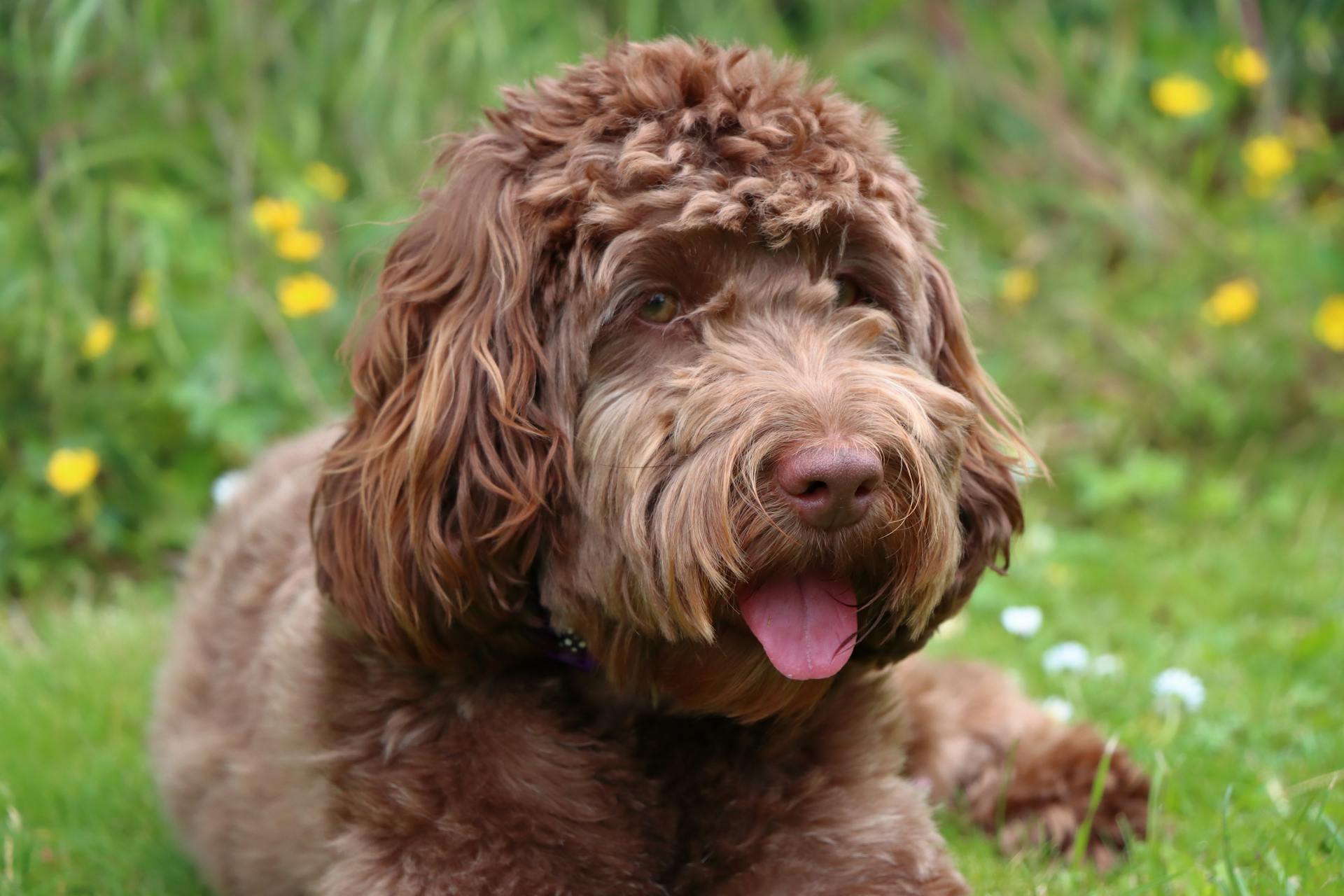
Traveling with grown children requires some planning and preparation to ensure a smooth and enjoyable experience for everyone.
Before embarking on a journey, consult with your child's pediatrician to make sure they're healthy enough to travel.
It's essential to have your child's medical records and identification handy, just like you would for a pet.
Bring familiar items from home, such as your child's favorite toys or blanket, to provide a sense of comfort and security.
Plan ahead and research kid-friendly accommodations and activities, and make reservations in advance to avoid any disappointments.
While on the road, use a comfortable and secure harness or car seat to keep your child safe, just like you would for a pet.
Frequent stops for exercise, bathroom breaks, and rest are crucial to prevent boredom and fatigue.
It's also a good idea to bring along a first aid kit and familiarize yourself with the location of pediatric clinics and emergency care facilities at your destination.
General Information
Cockapoos are a cross between a Cocker Spaniel and a Poodle, making them a unique and lovable breed. They typically weigh between 20-35 pounds and stand between 14-18 inches tall.
Their low-shedding coat requires regular grooming to prevent matting and tangling. A good rule of thumb is to brush their coat at least 2-3 times a week, with daily brushing recommended for puppies.
Additional reading: Shiba Inu Coat
Understanding the Breed
Red cockapoos are a mixed breed, a cross between a poodle and a cocker spaniel, known for their friendly and social nature.
They are renowned for their affectionate personalities and intelligence, making them great companions for families of all ages and lifestyles.
Red cockapoos have wavy to curly coats that are often non-shedding or low-shedding, and come in varying shades of red, from a light apricot to a deep mahogany.
Their coats may also feature a white chest blaze or other markings. They tend to have floppy ears that require regular cleaning to prevent infection.
You might enjoy: Do Cockapoo Dogs Shed
Red cockapoos may have a tendency towards separation anxiety or excessive barking if not socialized properly, so early socialization is crucial.
As a companion dog, the cockapoo is easy to please and has an outgoing nature, usually getting along with everyone.
They have the intelligence of their poodle forebears and the sweet disposition of their cocker spaniel ancestry, making them a loving and loyal companion.
You might enjoy: Cbd Companion Tincture Dosage for Dogs
History
The Cockapoo has a rich history that dates back to the 1960s, when it first emerged as a hybrid breed.
The first Cockapoos were likely the result of an accidental breeding, but they turned out to be intelligent, low-shedding, and easygoing puppies with the loving nature of a Cocker Spaniel.
These early Cockapoos were a hit, and the breed line began to take shape. Some breeders started working to establish breed standards and make the Cockapoo a true breed.
In 1999, the Cockapoo Club of America was formed, and it created a breed standard to promote breeding consistency and desirable traits.
Discover more: Boarding My Dog for the First Time
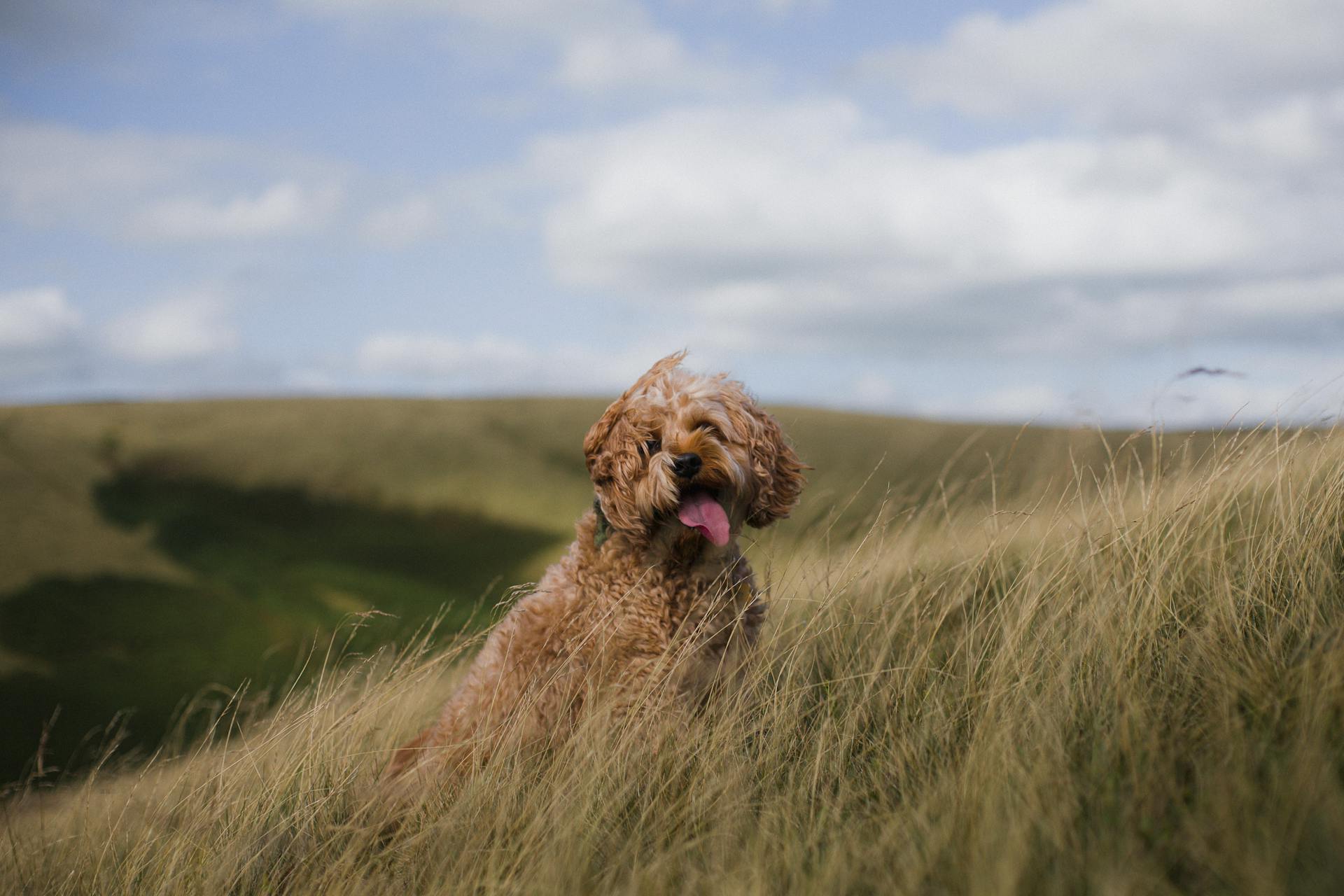
The American Cockapoo Club was formed in 2004, and its members aim to breed multigenerational Cockapoos with lines that can be traced back to their originating roots.
The North American Cockapoo Registry was also established in 1999, and it provides certification for Cockapoos that are the result of first- through sixth-generation breedings.
A true Cockapoo, according to the Registry, is only a purposeful, planned crossing of a purebred Cocker Spaniel with a purebred Poodle.
Suggestion: Pure Shiba Inu
Rescue Groups
If you're considering adopting a Cockapoo, a rescue group is a good place to start.
Many Cockapoos end up in the care of rescue groups due to being acquired without a clear understanding of what owning one entails.
Cockapoos are often surrendered to rescue groups because their owners didn't realize how much time and effort they require.
Rescue groups can provide valuable support and guidance as you navigate the process of adopting a Cockapoo.
These groups often have a network of experienced foster families who can help socialize and care for your new pet until you're ready to bring them home.
By working with a reputable rescue group, you can find a Cockapoo that's a great match for your lifestyle and living situation.
See what others are reading: How Often Flea Treatment Dog
Breed Organizations
Reputable breeders are committed to breeding healthy, well-socialized puppies that will make great companions.
Reputable breeders screen their breeding stock for health problems to ensure their puppies will be healthy.
Backyard breeders, on the other hand, may not screen their breeding stock for health problems, which can lead to health issues in their puppies.
Puppies from backyard breeders are also more likely to have behavioral issues due to inadequate socialization from a young age.
Reputable breeders socialize their puppies from a young age to help them become well-adjusted dogs.
Reputable breeders provide lifetime support to their puppy owners, which can be a huge help in addressing any issues that may arise.
Check this out: Dog Care Health
Frequently Asked Questions
Can Cockapoos be left alone?
Yes, Cockapoos can be left alone for periods of time, but it may take longer to house train them when no one is home. With proper preparation, such as a tile-floored room and dog-proofing, they can thrive when left alone.
Sources
- https://www.petmd.com/dog/breeds/cockapoo
- https://www.mydoodlepuppy.com/cockapoo-care
- https://medium.com/@attalacockapoos/teacup-cockapoo-care-tips-keeping-your-petite-pup-happy-and-healthy-b3798de28e33
- https://www.risdonfarmdogs.co.uk/caring-for-your-full-grown-red-cockapoo-expert-tips/
- https://dogtime.com/dog-breeds/cockapoo
Featured Images: pexels.com
